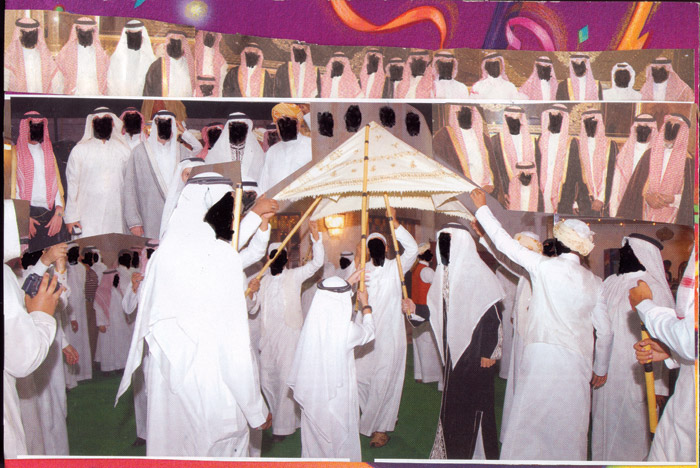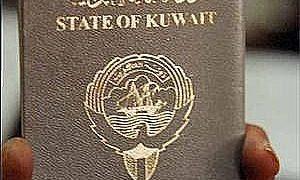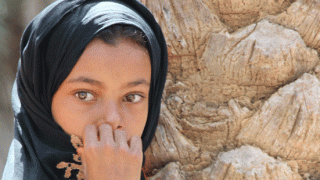Found guilty of uttering insults against the chief prosecutor and other members of the prosecution, as well as of publicly attributing quotes to the king without official permission of the royal palace, Kuwaiti ruling family member Ahmad Bin Fahd was sentenced to six months in prison on Dec. 1 of last year.
The sentence did not come as a surprise, although the fact that he was tried in the first place was highly unusual; in Kuwait as in other Gulf kingdoms, members of the ruling families are generally considered above the law.
All the more in the case of Bin Fahd, who is the nephew of the king and has in the past held key positions in various Kuwaiti ministries, as well as serving as head of the national police. In June of 2011, however, he had resigned as deputy prime minister to avoid questioning by parliamentary deputies regarding his involvement in corruption scandals.
After convicting Bin Fahd, the court proceeded to throw out a legal case he himself had launched, accusing the former head of parliament and the former prime minister, among others, of “conspiring to overthrow the ruling family in collusion with a foreign country,” as well as “money laundering and embezzlement.”
The case and the behind-the-scenes events it reflects have certainly not seen their conclusion yet, given that they are just small chapters of the decades-long story of internal conflict in the Kuwaiti royal family.
In 2006, Sabah al-Ahmad was crowned king of Kuwait, and his brother Nawwaf al-Ahmad named crown prince. The enthronement was the result of a long and complicated process of reconciling the fierce competition between two wings of the ruling family, the Jaber wing and the Salem wing, and their associated allies.
At the height of the confrontation a decade ago, both sides had gone all-in, using every means at their disposal, including bringing the security services and the military into violent clashes. The failure of the al-Sabah family to find common ground and choose amongst themselves who would be the next king of Kuwait had exposed for all to see the deep internal crisis the royal family was experiencing.
But their failure also opened a road for the elected Kuwaiti parliament to play a crucial role: carrying out its constitutional duty to choose the new king in fact rather than merely symbolically agreeing to the family’s choice; it was in reality the parliament which decided the outcome between the two wings of the royal family.
The parliament’s choice ignored a long-standing arrangement that the royal family typically followed. Customarily, the king was always chosen according to a "rotation rule" which alternated between the two wings of the dynasty, the al-Jaber and the al-Salem. But this time, an al-Jaber – King Sabah al-Ahmad- was chosen to succeed the previous al-Jaber king—and his crown prince was an al-Jaber as well.
In this regard it is interesting to note that in spite of the gratitude he expressed toward parliamentary deputies for making him king, Sabah al-Ahmad unhesitatingly ignored their calls for him to appoint a prime minister from outside the royal family.
In the end, though the parliamentary selection succeeded in calming the fears of many in Kuwait about the succession battle, it did not succeed in putting an end to the conflict itself. On the contrary, the competition between the two wings of the royal family for key government positions and public institutions has increased in intensity, each side wanting to be ready and in a commanding position when the next succession battle starts. That, of course, will be when the present king, who is now 87, dies. In fact the battle could begin even before that, if the current crown prince, Nayyaf al-Ahmed who is himself 79 years old, dies first.
The crisis in Kuwait resembles royal succession conflicts that are ongoing in all of the Gulf countries. In the kingdom of Saudi Arabia and the emirate of Abu Dhabi the situations are strikingly similar. Saudi observers are very closely following every move made by deputy crown prince Mohamad Bin Salman, who is in the midst of trying to oust his cousin Mohamed Bin Nayef, who currently occupies the post of Crown Prince; the race is on to take over the kingdom as soon as his father king Salman dies. Given the dire situation of Salman’s health, the deputy crown prince has been obliged to resort to every trick and achievement of modern health care to keep his father alive and thus allow himself more time to maneuver into position to succeed him when he dies.
In the neighboring emirate of Abu Dhabi, the wealthiest and most influential monarchy of the United Arab Emirates, it is extremely probable that the competition will intensify between the descendants of Zayed bin Sultan (known collectively as the ‘sons of Fatima’) once their half-brother Khalifa bin Zayed, the present ruler, passes away. When he dies, it is expected that Abu Dhabi will experience a battle like the ones that Saudi Arabia has sporadically gone through ever since the killing of king Faisal in 1975, and in Abu Dhabi it will involve the seven “Sudairi princes” – who are the sons of the ruler from his other wife Hussa al Sudairi – against the sons of Fatima.
All the royal families of the Gulf assert their power in a similar way. They monopolize power absolutely, never allowing anyone outside of the ruling family or from a different social group to share it. And simultaneously and incongruously, they describe their practice of governing as being happily accepted by their subjects, even as they acknowledge that their form of government is neither in essence democratic nor compatible with the spirit of the times.
While they rebuff any questioning of their monopoly on power or their political and financial privileges, the royal families of the Gulf have all come to the conclusion that they need to offer a few limited compromises in order to keep their subjects content and accepting of their authority.
The transformations that capitalist economies brought to the Gulf countries upended the “traditional legitimacy” that the royal families had once relied on, whether it be a hereditary legitimacy or that of the prevailing clan.
So over the past few decades, these royal families reformed the bureaucratic machines of their governments, introducing modern systems of laws to oversee these bureaucracies. Parallel to the old appointed shura councils [bodies of consultative advisors], new representative institutions were established, with parliaments whose deputies are actually elected.
Although the level of actual representation differs in practice from one royal family to another, they have all allowed these elected parliaments to become places where various political trends, modern and traditional, can coexist and collaborate. They are places where you can hear both the voices of technocrats demanding faster changes in order to modernize their societies as well as the voices of those who defend the superiority of living according to the rules of the times of the Prophet.
The reforms were meant to improve the way these societies were governed, as well as shore up the stability of the regimes, and in this sense they have worked–although other factors have played a role, namely the deterrence effect of these countries’ security services, police and militaries, all and always under the tight control of the royal families.
Nevertheless, the clashes that shook Kuwait in 2006, as well as the recent trial of Fahd al-Ahmad, uncovered the inner crisis that the al-Sabah family is experiencing. The consequences of which have not only impacted Kuwait but can be seen in the conflicts and feuds bubbling under the surface in the other monarchies of the gulf.
Long gone are the days when the competition between various wings of the royal families for privilege and position stays secret in the corridors of the palaces of the monarchs and their servants. The struggle has become all too public, requiring the rallying of potential allies in supporters in the police and army, forces whose loyalty was once guaranteed only to the king or emir or sultan, the fortress of his power and the foundation of his stability. But it is a loyalty which can no longer be guaranteed.
Translated by INTERNATIONAL BOULEVARD





